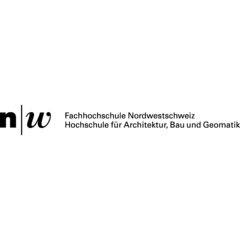Innovation Hub B0
science-materials-visions
Designed with sustainable materials, one of the many highlights of BAU 2023 will be the Innovation Hub in Hall B0. The focus here is in particular on the topics of resources and recycling, urban mining, modular construction, innovative construction processes.
Communication Area with Lecture Program
Take the opportunity and attend the top-class impulse lectures and discussions on current research results and future-oriented innovations.
Click here for the lecture program.
BAU’s area for start-ups is the perfect stage for young companies from the building sector!
In a central area of around 200 square meters, interested start-ups will find attractively de-signed exhibition stands to present themselves as an active market participant to an interna-tional audience and to establish important business contacts.
Research projects of the universities and colleges
Be inspired by the exciting research projects of the universities and colleges in the Innovation Hub B0.
The Institute for Virtual Design and Construction FHNW is driving forward the digitalisation of the Swiss construction and real estate industry and is focusing on new organisational forms, processes and tools that accompany this change.
At BAU 23, it will present its research projects on the topic of integrated design, construction and facility operation, as well as a range of courses in education and training that prepares its graduates properly for the digital transformation of the industry.
Within the framework of the cooperation „Materialbibliothek Deutscher Hochschulen", the Material Library of the Department of Architecture at KIT offers an extensive collection which, in addition to conventional materials, contains in particular secondary as well as recyclable materials.
As pioneers of sustainable construction, these materials make the value of purity, the necessity of using secondary materials, and the preservation of value in case of reuse or recycling comprehensible to future generations of architects.
This excerpt from the collection gives architectural professionals an insight into this class of novel, endlessly circulating building materials.
The Rosenheim Technical University of Applied Sciences is your research partner in five main research areas. Two of these areas deal with building construction, construction planning, energy management, as well as with bio economy and wood technology.
We investigate in construction with biogenic materials, from planning and implementation of the energy supply to generation-appropriate living.
In bio economy and wood technology, we explore bio-based materials and the substitution of fossil raw materials.
Our research in the circular bioeconomy is focused on pulping, fiber modification and product recycling.
The Natural Building Lab of TU Berlin presents research projects investigating circular construction, low-tech concepts based on natural building materials and transdisciplinary planning processes. The research and construction project “Pavilion and Knowledge Paths” pilots new methodologies and approaches as a real-world laboratory. The focus is on developing life cycle-compatible building systems using reused materials such as large-span reclaimed wood lattice girders. In the research project upMIN100, the recycling of mineral-based secondary raw materials is being researched. The project HZL compares two construction methods in earth-timber and timber-masonry multi-storey residential construction that use low-tech strategies based on sorption-capable building materials without the use of mechanical ventilation technology.
BIP: Business Intelligence Platform
TU Berlin Conscious City Lab CCL
FG Prof. Kohl
FG Prof. Borrego
Fraunhofer IPK
The project Bauhütte 4.0 is represented by an online business intelligence platform (BIP) that supports the planning of a value chain "from forest to city" in the Brandenburg/Berlin region. It is presented through an interface with four dashboards and an interactive table. The BIP simulates material flows along the value chain "from forest to city" and links them to different locations, logistics, production methods, actors, norms and standards. The platform demonstrates the application of the 3S strategy to the construction of affordable housing units at an urban scale. 3S - Sink, Storage and Substitution - is linked to the goal of storing carbon sequestered by forests in new and renovated buildings. This type of hypothesis exploration is intended to facilitate decision-making processes at the political-administrative level. Similar implementations can be applied to other German or European regions to discover new bio-based material reservoirs and simulate the contribution of new value chains across the continent.
TRR 277 Additive Manufacturing in Construction (AMC)
The DFG-funded Collaborative Research Center Transregio 277 Additive Manufacturing in Construction (AMC) aims with its basic research to significantly shape the digitalization of construction. Within the levels of components, processes and materials, the AMC researches resource- and energy-efficient as well as sustainable, recyclable and digital construction. Through innovative 3D printing methods, materials, processes and optimized design are completely rethought. A holistic and sustainable approach to the future of construction. Exhibit: The Tensegrity tower consists of seemingly floating rods, the special feature being the 3D-printed connecting elements, so-called nodes, which stabilise the tower through compressive and tensile loads. The connecting nodes were manufactured with powder bed fusion of metals using a laser.
TUM.wood—A network for research and teaching on the subject of wood
TUM.wood is a worldwide unique research network of the TUM with the aim to strengthen the use of the material and to intensify its contribution to a responsible use. TUM.wood combines competences from forestry and material research to architecture and building practice.
TUM.wood investigates the technical, architectural, ecological and economic possibilities of the renewable raw material along the entire value chain—from its origins in the forest to processing, application in the building industry and recycling strategies.






